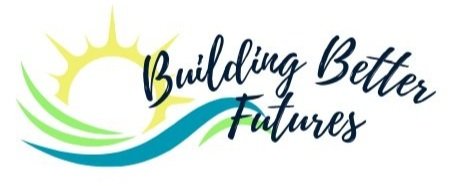If there was ever a time for compassionate classrooms, it’s now
Webinar Series for Educators
Building Students’ Social-Emotional Skills
Post-pandemic, most students' cognitive, social and emotional skills are far behind where they need to be in order to successfully meet academic expectations and social demands. The negative consequences of these lagging skills range from higher rates of anxiety and depression, social isolation and loneliness, a lack of engagement in school, and a backward slide academically. This webinar series is designed to provide educators with specific strategies, steps, and resources to build the skills that serve as the foundation for success in school and in life. All live webinars will take place from 3:45-4:45pm EST and recordings will be available for 30 days following the live webinars.
For the complete list of series topics, click here
Trauma Series (Pre-recorded)
We are facing a mental health epidemic for children and teens in this country, and trauma is a major contributor. Schools are on the front lines as record numbers of children are coming to school with anxiety disorders, depression, adjustment disorders and post-traumatic stress disorder, among other things. This Trauma Series was designed to support educators by providing them with knowledge, tools, strategies and resources to effectively cope with and manage these extraordinary challenges. The series consists of six pre-recorded, one-hour webinars.
For the complete list of series topics, click here
Wellness Series (Pre-recorded)
Learning can only happen when students feel safe and regulated. When a student doesn’t yet have the ability to regulate, it falls on the adult to remain regulated and guide that student back to a calmer state (co-regulation). This is not easy to do, and the proactive work becomes first about the teachers’ needs. With this webinar series, we aim to equip educators with tools, strategies, and habits that will allow them to care for themselves and restore balance and wellness in their lives.
For the complete list of series topics, click here
Webinar Series for Parents and Caregivers
Parents as Partners
The partnerships and collaboration between schools and families are crucial for student success. Our webinar series was developed with the goal of empowering parents and caregivers with information, strategies and connection in order to ease some of the stresses of raising a child in today's world. The Parents as Partners Webinar Series is being offered for the third year in a row, but this year we have made some exciting changes! We have brought back some of the most popular topics from previous years, but there are also several new topics and five additional presenters, all of whom bring a tremendous amount of knowledge and experience to share with families. Many districts have used the series to meet the ESSA requirement to connect with families, and our goal is to make this a seamless process. We have done all of the planning and legwork... all you need to do is let us know you'd like to participate, and we will do the rest!
For the complete list of series topics for 2024-25 click here.
Keynotes
Dr. Bashant’s keynotes paint a picture of the problem, offer the latest evidence-based practices to address the problem, and aim to have participants leave feeling motivated to take action and hopeful that they can make a difference in the lives of others. Her high energy and passion for this work are contagious, and her compassionate nature allows her to connect with and engage the audience.
Learn more about keynotes
Program Evaluation
Dr. Bashant serves as a MWBE outside evaluator for grants and implementation studies. She has served as a research scientist for the NYS Office of Mental Health and the Center for Human Services Research at the State University of NY, University at Albany. Dr. Bashant was also the director of research and program evaluation at the Capital Area School Development Association (CASDA).
Evaluation of an after-school science program at the Children's Museum of Science and Technology (CMOST)
Evaluation of a math curriculum in Schenectady City School District
Program evaluation for the Neil Hellman School, Albany, NY
Evaluation of changes in the culture and climate at Hancock Central School District
Evaluation of a federally funded grant for Albany High School to convert to Magnet Schools
Co-Principal investigator on federal grant from the Office of Juvenile Justice and Delinquency Prevention to evaluate the impact of the Big Brothers, Big Sisters Mentoring Program
Training
Restorative Circles Build Trust and Connection
Collaborative Problem Solving to Reduce Challenging Behavior
Trauma-Informed Collaborative Classrooms
As an educator, you are faced with challenge of meeting the social and emotional needs of ALL your students. This can be challenging enough with typical learners, but it is even more difficult with those who have experienced trauma or have mental health challenges. Students with trauma (known or unknown) often exhibit extremely challenging behavior and it can be difficult to make a connection. Traditional behavioral approaches to classroom management and a punitive approach to discipline simply are not effective with this group of students. A trauma-informed approach that includes positive relationships, a strengths-based approach and supportive interactions has been proved to greatly reduce challenging behavior, improve student engagement and increase learning outcomes. Not only does this positive approach benefit every one of your students, it is absolutely essential for students with trauma.
Strengthen Students’ Social Emotional Skills
You Come First: Prevent Compassion Fatigue and Improve Your Well-Being
The Connected Classroom
DiSC: Building More Effective Administrative Teams and School Boards
Dr. Bashant is a certified DiSC trainer, and she uses this model to help develop more effective teams and highly engaged and motivated employees including Boards of Education, Building Leadership Teams, Office Professionals and/or entire faculties.
The DiSC Assessment is a performance improvement model created by Dr. William Marston at Columbia University and researched and updated by Dr. John Deier and Inscape Publishing at the University of Minnesota. The DiSC model is used as a foundation to achieve the following outcomes:
Improve collaboration and reduce conflict
Build results-producing teams
Develop effective leaders and managers
The DiSC model increases emotional intelligence helping employees to first, better understand themselves and their own work style preferences and priorities, and second, to understand what motivates others and why they behave the way they do.
Building Emotionally Intelligent Teams
Being in classrooms, supporting teachers and modeling a trauma-informed, collaborative approach is, by far, the most rewarding work I do.
As a mom of a child who had special needs, I know what it feels like to be misunderstood and labeled as "one of those parents." I have felt the difference between the teacher who saw my child's strengths and found ways for him to shine, and the teacher who used sarcasm and strict discipline to "encourage good behavior." I have also seen what a profound difference the first teacher made on my child's self-esteem, willingness to take risks, and even his social relationships.
Positive relationships, a solid social and emotional curriculum and an overstuffed toolbox of trauma-informed, skill-building strategies are the keys to making the school year positive for teachers, students and families.
Coaching
Collaborative Problem Solving to Reduce Challenging Behavior
1:1 Student Coaching to Build Social-Emotional Learning (SEL) Skills
Teacher Wellness Coaching (virtual)
Teaching requires an inordinate amount of self-compassion, frustration tolerance, and reflection. These skills are more difficult to access when one is stressed, overwhelmed, or even burned out, so our wellness coaching was designed to create a safe space to support teachers in this difficult work. Individual sessions are 30-minutes and are tailored to the needs of each teacher. Common areas of focus are self-care planning, processing difficult emotions, prioritizing challenging tasks, mindset and building resilience and hope.
[Sessions can be purchased in groups of 4 or 8 for individual teachers]








